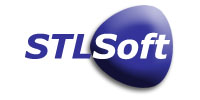


|

|
|
|
|
/* ///////////////////////////////////////////////////////////////////////////// * File: example.c.2.c * * Purpose: Implementation file for the example.c.2 project. * * Created: 27th April 2006 * Updated: 24th August 2008 * * Status: Wizard-generated * * License: (Licensed under the Synesis Software Open License) * * Copyright (c) 2006-2008, Synesis Software Pty Ltd. * All rights reserved. * * www: http://www.synesis.com.au/software * * This source code is placed into the public domain 2006 * by Synesis Software Pty Ltd. There are no restrictions * whatsoever to your use of the software. * * This source code is provided by Synesis Software Pty Ltd "as is" * and any warranties, whether expressed or implied, including, but * not limited to, the implied warranties of merchantability and * fitness for a particular purpose are disclaimed. In no event * shall the Synesis Software Pty Ltd be liable for any direct, * indirect, incidental, special, exemplary, or consequential * damages (including, but not limited to, procurement of * substitute goods or services; loss of use, data, or profits; or * business interruption) however caused and on any theory of * liability, whether in contract, strict liability, or tort * (including negligence or otherwise) arising in any way out of * the use of this software, even if advised of the possibility of * such damage. * * Neither the name of Synesis Software Pty Ltd nor the names of * any subdivisions, employees or agents of Synesis Software Pty * Ltd, nor the names of any other contributors to this software * may be used to endorse or promote products derived from this * software without specific prior written permission. * * ////////////////////////////////////////////////////////////////////////// */ /* b64 Header Files */ #include <b64/b64.h> #include <b64/implicit_link.h> /* Don't include this if you want to use explicit linking */ /* Standard C Header Files */ #include <assert.h> #include <stdio.h> #include <stdlib.h> #include <string.h> /* ////////////////////////////////////////////////////////////////////////// */ int main(void) { /* Conversion using b64_encode2() and b64_decode2(), using a line limit. */ /* Flags that will control the conversions. */ const unsigned encodingFlags = B64_F_LINE_LEN_USE_PARAM; /* b64_encode2() will use the lineLen parameter to determine line length. */ const unsigned decodingFlags = B64_F_STOP_ON_UNKNOWN_CHAR; /* b64_decode2() will fail if any non-b64-character / non-white-space character is in the encoded string. */ const int encodingLineLen = 16; /* Encoding line length will be 16 characters. */ /* Declare an array of ints to use as the 'binary' blob to encode. */ int ints[] = { 1, 2, 3, 4, 5, 6, 7, 8, 9, 10 }; /* Invoke b64_encode() to determine the maximum size of the encoded * string, specifying the argument 0 for the destSize parameter. * * Note: The value returned may be larger than the actual size * required, but will never be smaller. */ B64_RC rc; size_t cch = b64_encode2(&ints[0], sizeof(ints), NULL, 0, encodingFlags, encodingLineLen, &rc); /* Using the length determined by the call to b64_encode(), create * a buffer of sufficient size. */ char *enc = (char*)malloc(cch); size_t cb; void *dec; char const *badChar; /* Perform the encoding. */ cch = b64_encode2(&ints[0], sizeof(ints), enc, cch, encodingFlags, encodingLineLen, &rc); printf("Converted: [%.*s]\n", (int)cch, enc); /* Invoke b64_decode() to determine the maximum size of the decoded * blob, specifying the argument 0 for the destLen parameter. * * Note: The value returned may be larger than the actual size * required, but will never be smaller. */ cb = b64_decode2(enc, cch, NULL, 0, decodingFlags, &badChar, &rc); /* Using the length determined by the call to b64_decode(), create * a buffer of sufficient size. */ dec = malloc(cb); /* Perform the decoding. */ cb = b64_decode2(enc, cch, dec, cb, decodingFlags, &badChar, &rc); /* Handle the error. */ if(0 == cb) { fprintf(stderr, "decoding error %u at character %d: %s\n", rc, (int)(badChar - enc), badChar); } else { /* Verify that the decoding is exactly the same size and contents as * the encoding. */ assert(cb == sizeof(ints)); assert(0 == memcmp(&ints[0], dec, sizeof(ints))); } /* Clean up */ free(dec); free(enc); return EXIT_SUCCESS; } /* ////////////////////////////////////////////////////////////////////////// */
|
|
| b64 Library documentation © Synesis Software Pty Ltd, 2004-2007 |